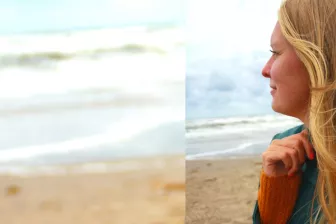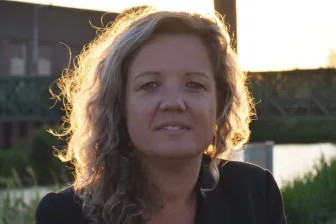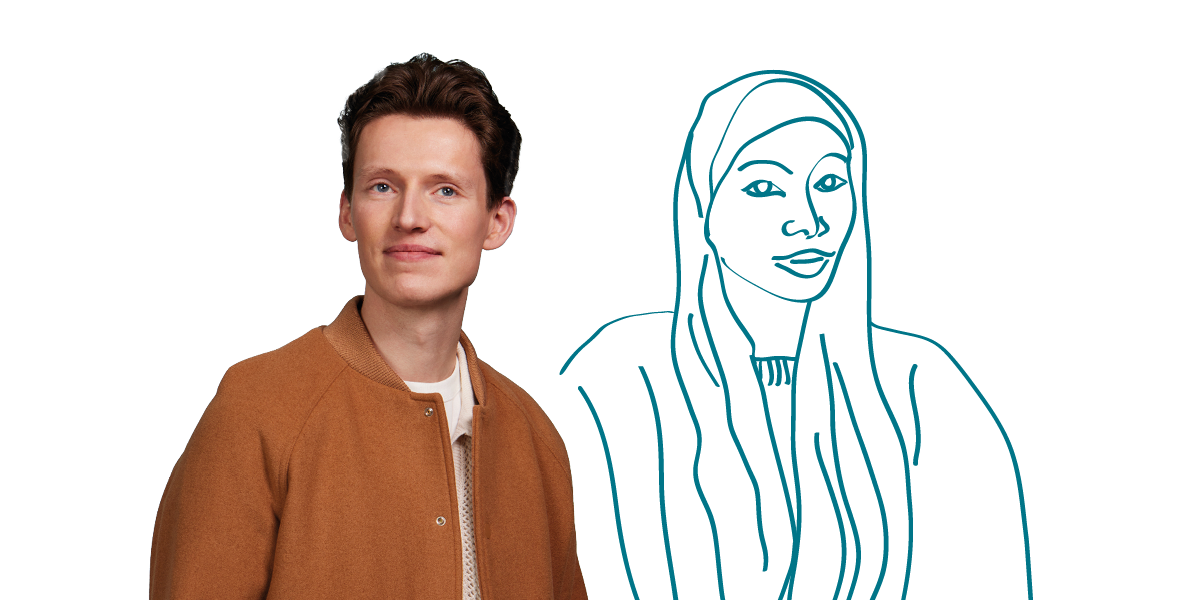Contact us!
Do you have questions or doubts, or would you like to discuss with someone whether restorative mediation is right for you?
Were you involved in sexually transgressive behavior?
Something sexual happened that didn't feel right in the moment or afterwards. Maybe it happened while you were going out, through social media, within your relationship, friend group, or at home. Someone did something to you that you didn't want, or maybe you crossed someone else's boundaries. Sexually transgressive behavior can happen in many different ways. It can be a sexual remark, an inappropriate touch, or rape.
You can feel very bad because of what happened. You could be very angry or scared, or feel like you did something wrong. Maybe you're asking yourself whether you should have stated your boundaries more clearly, or whether you should have paid more attention to someone else's boundaries.
You can also have questions about why or how it happend. For example:
- Why did it happen to me?
- Would it help if I apologized?
- Why did they pick me?
- Do they know how terrible this was for me?
- Are they scared of me now?
- What if I run into them again?
- Was it my own fault?
- What if it happens again?
- Do other people know what happened?
Restorative mediation after sexual violence
This video discusses and gives information about restorative mediation after sexual violence.
Restorative mediation can help
In restorative mediation, you get in contact with the other person(s) that were involved in the event. This contact is guided by one of our professional mediators. You can choose for yourself what you would like to ask or say to the other person. For example:
- Why you or the other person did it
- What the consequences were for you
- How the other person experienced it
- How you would like to move on
It can help to talk about what happened, to say how you feel about it, and get answers from the other person. This can help you feel more calm, less angry, less scared, or less guilty. It can help to process the event and come to terms with it. You can also talk about how you will move on, for example in case you know each other or live in the same neighborhood. You could, for example, agree that you will only greet each other from a distance in the future.
You don't necessarily have to have a face-to-face conversation with the other person, if you don't want to. You can also write each other a letter, or send messages through the mediator. You can also record an audio or video message for the other person. You decide what kind of contact you want. Visit this page for more information about how it works.
Good to know:
- Restorative mediation is voluntary and free of cost.
- The contact is confidential.
- The mediator is neutral and prioritizes the wants and needs of both parties.
- All participants can start, pause, or quit the mediation at any point.
- You can bring someone to the meeting to support you.
- If you do not speak (good) Dutch or English, we can arrange an interpreter for you who will translate. This does not cost money for you.
Apply
You can apply for restorative mediation on this page.
If you apply, this doesn't mean we will immediately contact the other person, or that you commit to getting in contact with them. We will first discuss with you why you want restorative mediation, and what is important to you. Only once you give permission, the mediator will contact the other person.
Experiences of others

For a time during high school, Julia* (25) was tutored almost weekly. She realises now that the transgressive behaviour that the man, a family friend, showed towards her, was not okay. “I wanted to let him know how it had affected me, and how it still affects me.”

Sonja got in contact with the man who raped her almost 20 years ago. “I feel more calm,” she says. “I can run into him in the street now.”

E. was sexually abused as a child by a family friend. 35 years later, he meets with him. “I’m here to get closure.”

In her childhood, Hannah was sexually abused by her father. Recently, she talked to her mother and father with the help of a mediator. 'I got sincere recognition from my father. I could calmly explain to him how the abuse had affected me.'

Feline (31) fell victim to sexual assault when she was sixteen years old. After years of therapy, she wanted to let the perpetrator know what kind of impact this had had on her life. “Eventually, I dared to look the perpetrator in the eyes, and I read a letter to him. Such a release.”

Esther* (49) experienced sexually transgressive behavior when she was a student. She tucked the experience away and hid from it, but the memory of that night recently resurfaced. She decided she needed to do something about it, and applied at Perspectief to get in contact and talk with the other person about what happened.

Twelve years after athlete Ilonka was raped by her trainer, she met up with him again. A mediator from Perspectief Herstelbemiddeling guided the meeting. “The roles were reversed now. I was able to tell my story, I was in control, and that was a good thing for me.”

When she was 43, Gaby had a conversation with her uncle, who sexually abused her when she was a child. “I wanted to hand the secret and the responsibility regarding all of this back to him, and with that take back my agency and my freedom."

Sandra is the victim of sexual violence and wants to ask questions to the perpetrator. During the mediation she first chose an exchange of letters. After that, a meeting took place under the guidance of a mediator.
